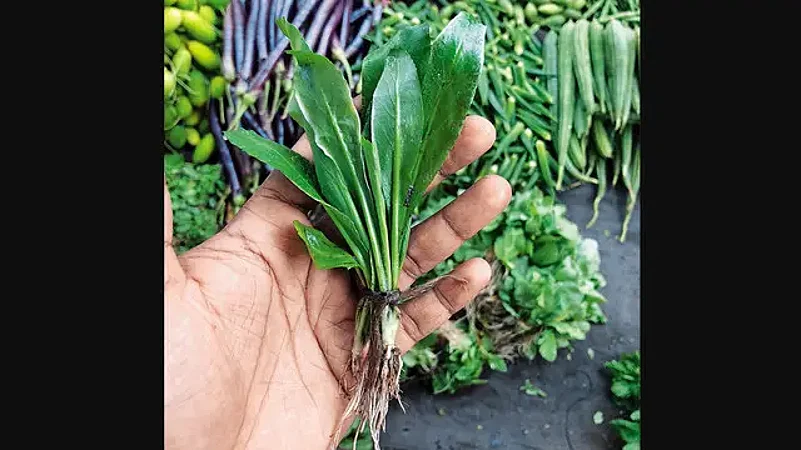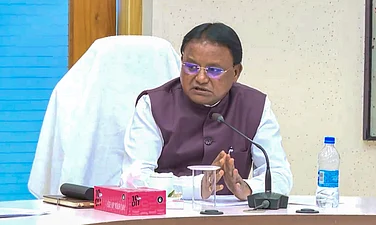I’ve been a professional chef for 15 years but it’s only been over the last seven that I’ve started exploring and chronicling stories of regional Indian cuisines. Recently, I left the kitchen to build and launch The Locavore, a platform that nurtures connections between indigenous foods and people through storytelling, recipes, events, and food producers. Here’s what I realised through my travels that led me to that decision:
A Smörgåsbord
The diversity that India offers in terms of cuisines and ingredients is astounding. There are so many incredible local fruits, vegetables and spices in different parts of our country which are hardly spoken about or celebrated. The wide impression that ‘local is sub-par’ has meant that we are often enamoured by imported ingredients. Sadly, in India, only a handful of chefs and restaurants are willing to expand and tell stories of local delicacies and their richness.
Take the hallowed Italian lemon, for example. Around a year ago, I came across galgal or pahadi nimbu in Uttarakhand—and it was an absolute revelation. These lemons are about twice the size of their western counterparts, and have a powerfully fragrant rind and puckering sour flesh. However, beyond its own state’s borders, not many people know of it.
For the first time a few months ago I tried clove beans, a tender fruit with long pedicels and swollen, bulb-like tips. Despite my proclivity for lesser known ingredients and the fact that it is even perennial in my home state of Kerala, I’d never seen it on a restaurant menu or even in any markets! Known as nithya vazhuthana (evergreen eggplant) in Malayalam or mookuthi avarai (nose stud beans) in Tamil, it is rich in Vitamin C, fibre, potassium and calcium. Traditionally, it is used to make avial, sambhar, theeyal and kootu.
Another recent discovery was while traveling to Chorla Ghat, a section of the Sahyadri mountains in the Western Ghats of Goa, where I found chivari (tender bamboo shoot), a wild ingredient. The Gaonkar tribe, who inhabit this region, cook bamboo shoot with green or white peas and spices, and it tastes spectacular. It is strange that in India, we are oblivious to what grows on our own soil. These are things that are right under our noses! These are just three examples of hundreds, if not thousands, of unique ingredients that used to find space on dining tables across India, yet are now hardly consumed. To preserve and chronicle these is the need of the hour, and a part of The Locavore is dedicated to just that.

Eat, Pray, Love
Countries across the world like Italy, France and Japan promote not just their own cuisines, but also their farmers and artisanal food producers who are making conscious efforts to preserve their culinary legacy, support local communities, and grow food sustainably. I’d like to believe that such a reverence existed in India too. But somehow, over the years, we’ve forgotten or ignored the people who put food on our table.
Consumers in India today are constantly bombarded with words like organic, sustainable, natural etc, but what do these actually mean? And how do we figure out what is credible and what is not? The world of food is a maze and navigating through it in our hectic everyday lives can be quite tiresome. That’s also where The Locavore comes in. To guide people through the clutter of producers and food brands and all the marketing spiel that comes with them.
On a recent trip to Thrissur district in central Kerala, I met the people behind Forest Post, an enthusiastic social enterprise that sells products made from forest produce such as honey, shatavari, mango ginger, and wild fern. Their mission is to secure sustainable livelihoods amongst native, forest-dwelling communities in the surrounding Chalakudy and Karuvannur river basins of the Western ghats.
Hill Wild is another organization founded by Zeinorin Stephen and Leiyolan Vashum based out of Ukhrul in northeastern Manipur that works with 200 farmers to promote lesser known ingredients from the northeast like hau chilli, mountain pepper and perilla seeds.
There are many more such producers across the country, and at The Locavore, we want to champion great quality local produce, contextualising these producers on the basis of their production practices, how they treat their workforce, their interventions in the community around them, and the sincerity of their efforts and vision.
A Movable Feast
As someone who cares deeply about food, I started The Locavore with the hope of creating enduring impact through food. Simply put, it’s a platform championing the best regional food across India through storytelling, highlighting the work of food producers, curating recipes from local food experts, and organizing events and travel experiences that celebrate our culinary diversity.
Let's face it. The food systems in India are vast, messy and complex, and to be able to make responsible food choices is by no means an easy task. The Locavore aims to offer a deeper understanding of where our food comes from, who grows it, and the impact of our food choices. And as much as every small action counts, I believe that it is only through coming together as a community that we can create positive change. With a deep focus on the impact of food on people, our heritage, and the environment, we are committed to learning, unlearning, engaging with our larger community, doing good through food, and having fun along the way.
As told to Mayank Jain Parichha
Thomas Zacharias (is a chef who founded The Locavore to nurture connections between local foods and people)
















